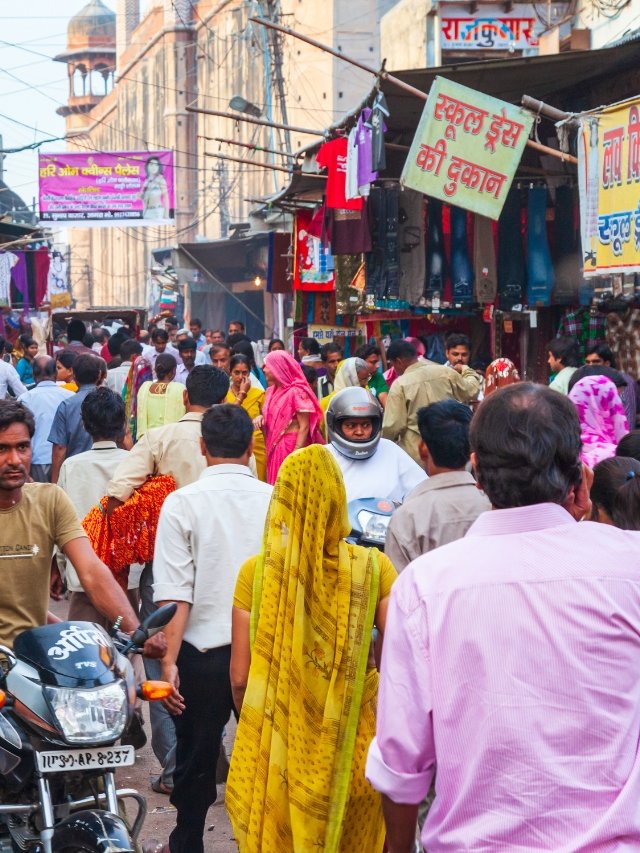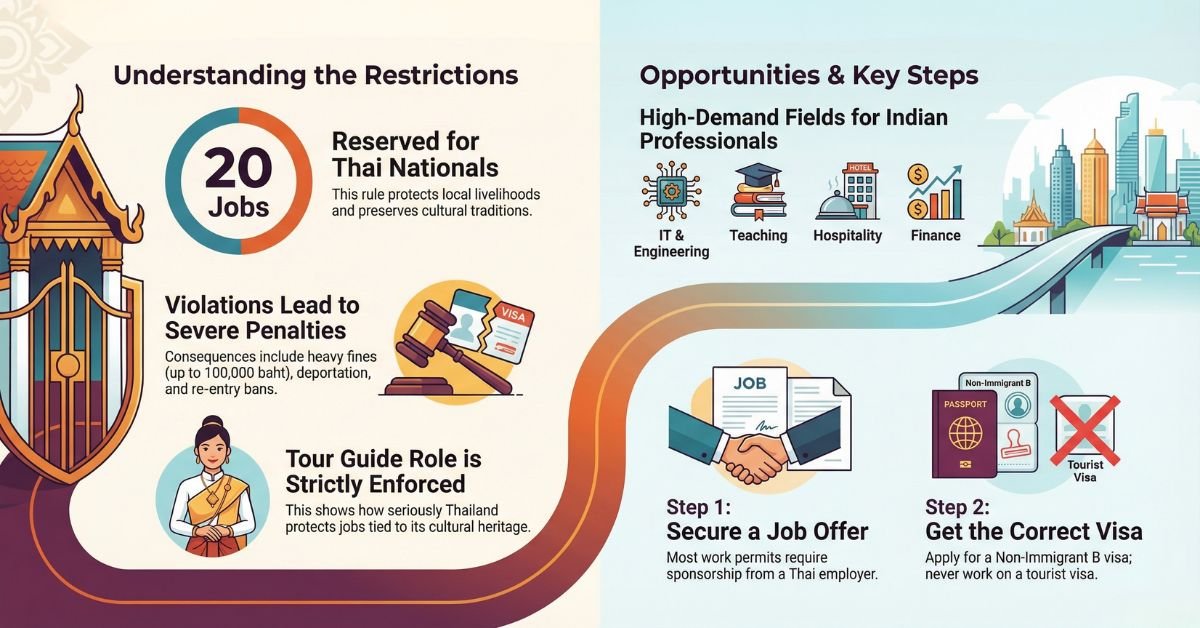Table Of Contents
Introduction
Picture this: a young graduate from India, scrolling through social media, spots a job ad promising a high-paying role in Thailand.
It sounds like a golden opportunity: good salary, free accommodation, and a chance to work abroad.
However, upon arrival, their passport is seized, and they are locked in a guarded compound, forced to run online scams under threat of violence.
This is the grim reality for thousands of Indian nationals trapped in Myanmar’s cyber-scam operations, particularly in the Myawaddy region, known as the “global capital of scams.”
As of July 2025, India has rescued over 1,000 citizens, but many remain ensnared.
At THOUSIF Inc. – INDIA, we are diving deep into this crisis, exploring how these syndicates operate, the harrowing experiences of victims, India’s repatriation efforts, and the global fight against this multi-billion-dollar criminal network.
The Rise of Cyber-Scam Hubs In Myanmar
A Perfect Storm Of Instability
Myanmar’s descent into chaos following the 2021 military coup has created fertile ground for criminal syndicates.
The ongoing civil war and weak governance have turned border regions like Myawaddy, near Thailand, into lawless zones.
Here, scam compounds like KK Park, often disguised as casinos or economic zones, thrive under the protection of local militias like the Karen Border Guard Force.
These operations, largely run by Chinese syndicates, generate billions annually, estimated at $18–37 billion across Asia in 2023.
Indian nationals, valued for their English proficiency and IT skills, are prime targets, lured by fake job offers in IT, data entry, or digital marketing.
Why Indian Nationals Are Targeted
The combination of India’s large, educated workforce and economic aspirations makes its citizens vulnerable.
Young job seekers from states like Andhra Pradesh, Telangana, Maharashtra, Gujarat, Punjab, and Uttar Pradesh are drawn to promises of lucrative careers abroad, unaware of the dangers awaiting them.
How Criminal Syndicates Ensnare Victims
Recruitment Through Deception
The trap begins with polished job ads on platforms like Facebook or through unregistered agents in India and Dubai.
These ads promise roles like “Digital Sales and Marketing Executives” with salaries of $700–1,500 per month, plus perks like accommodation.
The offers target educated but often economically vulnerable individuals, exploiting their dreams of a better life.
Trafficking Across Borders
Once recruited, victims are flown to Thailand or Malaysia, then smuggled into Myanmar, often bypassing legal immigration processes.
Their passports are confiscated, leaving them stranded in heavily guarded scam compounds.
Forced Labor And Fraud
Trapped in these compounds, victims are coerced into running sophisticated scams, including:
- Pig Butchering Scams: Building trust with targets online, often through fake romantic relationships, to defraud them via sham cryptocurrency platforms.
- Other Frauds: Credit card scams, phishing schemes, and honey trapping.
Brutal Coercion
Resistance is met with severe consequences.
Victims face physical beatings, starvation, and confinement in prison-like conditions.
Many endure 18-hour workdays under constant surveillance, with some forced to pay ransoms of ₹4–8 lakh to escape.
The United Nations estimates over 120,000 people from various countries remain trapped in these centers.
The Human Toll: A Case Study
Pradeep Vijay’s Ordeal
Pradeep Vijay, a 24-year-old from Maharashtra, embodies the human cost of this crisis.
In August 2022, he responded to a social media ad for a data entry job, only to be trafficked to Myawaddy’s KK Park.
Instead of data entry, he was forced to scam Indian expats in the U.S. through cryptocurrency fraud.
His brother, Deepak, described the torture and psychological coercion Pradeep endured.
His family paid a hefty ransom for his release, but the trauma continues to haunt him, leaving him reluctant to discuss his ordeal.
India’s Repatriation Efforts
Major Rescue Operations
India has mounted significant efforts to bring its citizens home, rescuing over 1,000 since 2022.
Key operations include:
- In March 2025, 549 citizens were airlifted from Mae Sot, Thailand, using Indian Air Force C-17 aircraft—283 on March 10 (266 men, 17 women) and 266 on March 11.
- In April 2025, 36 individuals were rescued, with 32 repatriated on April 10 and four on April 18 via Yangon.
- Since 2022, 1,413 citizens have been brought back from Cambodia (650), Laos (548), and Myanmar (415).
Diplomatic Coordination
The Indian embassies in Myanmar and Thailand have worked closely with local authorities to facilitate these rescues.
Prime Minister Narendra Modi praised Myanmar’s cooperation during the BIMSTEC Summit in April 2025, highlighting the diplomatic efforts behind these operations.
Challenges In Repatriation
Despite these successes, hurdles remain.
An estimated 2,000 Indians are still trapped, with some, like agent Rajashekaram Sham Rao, refusing to return due to financial or legal fears.
Logistical challenges, such as bureaucratic delays and victims’ lack of resources, further complicate rescues.
Government And International Response
India’s Actions
India has taken decisive steps to combat the crisis:
- Investigations: The Central Bureau of Investigation (CBI), National Investigation Agency (NIA), and Indian Cybercrime Coordination Centre (I4C) are probing trafficking networks. In November 2024, the NIA searched 22 locations, targeting sub-agents in states like Bihar and Uttar Pradesh.
- Arrests: Five individuals were arrested in May 2024 for facilitating illegal border crossings to scam centers in Laos and Cambodia.
- Advisories: The Ministry of External Affairs issues regular warnings against fake job offers, urging verification through Indian missions.
- Cyber Measures: The government has blocked websites promoting fraudulent jobs and pushed for prosecutions.
Global Efforts
The international response involves multiple players:
- China: Over 40,000 Chinese citizens have been repatriated, with China pressuring Myanmar and Thailand to dismantle scam hubs, though returnees are often treated as suspects.
- Thailand: In March 2025, Thai authorities arrested 100 people and cut power to five scam hubs in Myawaddy.
- Sanctions: The EU and UK sanctioned Myanmar officials, such as General Saw Chit Thu, for profiting from trafficking.
- ASEAN and UN: The Association of Southeast Asian Nations and the UN Office on Drugs and Crime are working on victim identification and judicial coordination, though progress is slow.
The Financial Impact
A Multi-Billion-Dollar Scam Industry
The financial toll is staggering.
In the first nine months of 2024, India lost ₹11,333 crore ($1.3 billion) to cyber scams, with daily complaints soaring from 71 in 2019 to 6,175 in 2024.
Globally, scam compounds like KK Park fuel a multi-billion-dollar industry, targeting victims worldwide through fake investment and romance schemes.
Challenges In Eradicating The Crisis
- Scale and Complexity: Over 7,000 individuals from 24 countries remain trapped, with many held in overcrowded, unhygienic detention camps post-rescue. The sheer number of victims overwhelms repatriation efforts.
- Regional Instability: Myanmar’s civil war and militia control enable syndicates to operate with impunity, often under the protection of groups like the Karen Border Guard Force.
- Adaptation by Syndicates: Criminals adapt swiftly, using Starlink internet and generators to evade crackdowns and relocating to areas like Karen State.
- Legal Gaps: Outdated laws and unregulated online recruitment make enforcement challenging, allowing syndicates to operate with relative ease.
- Victim Reluctance: Some victims fear legal repercussions or financial issues in their home countries, complicating their return.
Recommendations For Prevention and Recovery
- Public Awareness Campaigns: Educating job seekers about scam indicators is crucial. Campaigns should focus on verifying job offers through Indian missions, recognizing red flags like high salaries for minimal qualifications, and spreading awareness via social media.
- Strengthened Enforcement: Authorities must increase arrests of unregistered agents, strengthen cybercrime laws, and collaborate with tech companies to block fraudulent ads.
- International Collaboration: India should advocate for a global cybercrime treaty and enhance cooperation with ASEAN nations, China, and Thailand to disrupt trafficking networks.
- Victim Support: Repatriated victims need psychological counseling, financial aid, and reintegration programs to rebuild their lives. Legal amnesty for coerced criminal activities could encourage returns.
- Border Control: Stricter immigration checks and border monitoring with Thailand and Myanmar can prevent illegal crossings to scam hubs.
The Global Context
The crisis extends beyond India, affecting countries like China, Vietnam, Ethiopia, and Indonesia.
China’s aggressive repatriation contrasts with India’s humanitarian approach, while syndicates’ adaptability undermines Thailand’s crackdowns. A unified global response is essential but hindered by geopolitical tensions.
Conclusion
The entrapment of Indian nationals in Myanmar’s cyber-scam operations is a chilling blend of human trafficking and cybercrime, exposing the dark underbelly of globalized job markets.
India’s rescue of over 1,000 citizens since 2022 is a beacon of hope, but thousands remain trapped, and the fight is far from over.
At THOUSIF Inc. – INDIA, we are dedicated to raising awareness about such global issues.
Through public education, stronger enforcement, and international cooperation, we can protect vulnerable individuals and dismantle these criminal networks.
Dive into more stories and solutions on our website, and join us in building a safer, more informed world.
Trivia
The term “pig butchering” describes how scammers “fatten up” their victims with trust before defrauding them, a grim reflection of the predatory tactics used in these scams.










